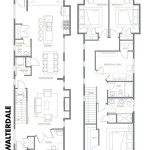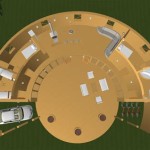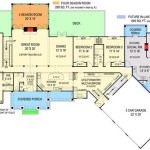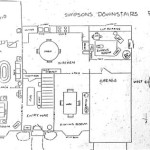Medium-Scale Pig Housing Plans: A Comprehensive Guide
Efficient and effective pig housing is crucial for the success of any medium-scale pig farming operation. Medium-scale pig farms, typically raising between 50 to 200 sows, require well-planned housing systems that optimize animal welfare, production efficiency, and biosecurity. This article provides a comprehensive guide to developing medium-scale pig housing plans, outlining key considerations and essential features.
1. Housing System Selection
The choice of housing system depends on several factors including the farm's production goals, climate, available resources, and the stage of production (gestation, farrowing, or finishing). Some commonly employed housing systems for medium-scale farms include:
- Gestation Housing: Group gestation stalls allow sows to interact socially, reducing stress and improving productivity. These stalls provide individual feeding and watering spaces while allowing for group exercise areas. Alternatively, individual gestation pens provide more space and privacy for sows, particularly those with health issues or those nearing farrowing.
- Farrowing Housing: Farrowing crates offer controlled environments for sows and piglets, minimizing the risk of crushing. However, some farms prefer farrowing pens that allow for more movement and interaction between sows and their litters. This option necessitates careful monitoring and experienced staff.
- Finishing Housing: Finishing pigs can be housed in group pens, typically with a combination of solid and slatted flooring. This allows for optimal manure management and promotes natural pig behavior. Alternatively, individual pens may be used for animals with health concerns or those exhibiting aggression.
When choosing a housing system, it is crucial to consider the following factors:
- Animal welfare: Ensure ample space for movement, comfortable resting areas, and opportunities for social interaction.
- Biosecurity: Implement measures to minimize the risk of disease introduction and spread, such as dedicated entry and exit points, footbaths, and strict cleaning and disinfection protocols.
- Production efficiency: Optimize the flow of animals, minimize labor requirements, and maximize feed conversion efficiency.
- Sustainability: Incorporate features that minimize environmental impact, such as manure management systems, energy-efficient ventilation, and water conservation.
2. Design Considerations
Designing a medium-scale pig housing facility involves careful consideration of several key factors:
- Space allocation: Ensure adequate floor space per animal, considering their stage of development, breed, and housing system. Refer to industry standards and best practices for recommendations on space requirements.
- Ventilation: Proper ventilation is essential for maintaining optimal air quality, removing moisture and gases, and controlling temperature. Choose a ventilation system that provides adequate airflow and temperature control.
- Lighting: Provide appropriate lighting levels to support animal welfare and production efficiency. Natural light is beneficial for pig health, but artificial light may be required for extended periods. Consider using light timers to regulate day-night cycles.
- Manure management: Implement an efficient manure management system that minimizes environmental impact and reduces odor. Options include slurry pits, compost systems, or anaerobic digesters.
- Feed and water systems: Choose durable and reliable feeding and watering systems that ensure consistent delivery of nutrients and hydration. Consider automatic feeders and waterers to reduce labor requirements.
3. Construction and Materials
When constructing a medium-scale pig housing facility, consider using materials that are durable, easy to clean, and resistant to moisture and corrosion. Commonly used materials include:
- Concrete: Durable and easy to clean, but can be costly.
- Steel: Strong and durable, but may require corrosion protection. Consider galvanized or stainless steel options for longevity.
- Wood: Cost-effective but susceptible to rot and moisture damage. Treat wood properly and use it in areas where moisture is minimal.
- Plastic: Lightweight and easy to clean, but may not be as durable as other materials.
Ensure that all construction materials meet appropriate building codes and regulations. Consider consulting with a professional architect or engineer to ensure proper design and structural integrity.

Floor Plan Of Three Pig Housing Rooms In A Study On The Effects Scientific Diagram

Livestock Kenya Pig Housing Plans For Small Scale Farmers

Plan View Of Pen Layout And Designs For All Group Sizes Dimensions Scientific Diagram

Livestock Kenya Pig Housing Plans For Small Scale Farmers

Sow Housing Options For Gestation Pork Information Gateway

Livestock Kenya Pig Housing Plans For Small Scale Farmers
Housing

Housing Requirements Of Pigs Agriorbit

Basic Infrastructure For Small Scale Pig Farming

Livestock Kenya Pig Housing Plans For Small Scale Farmers








